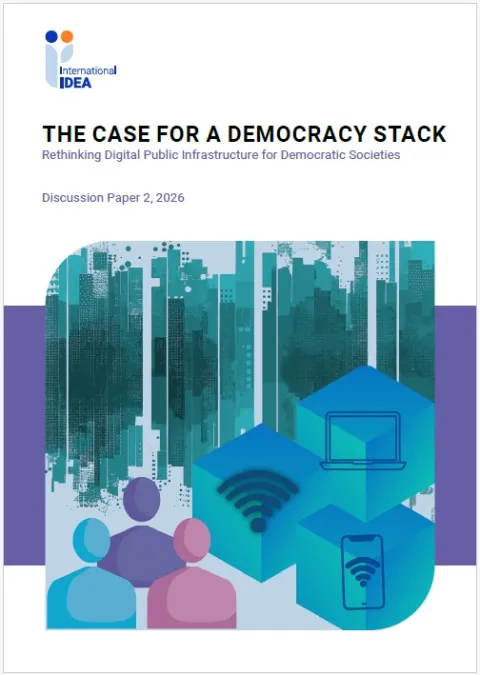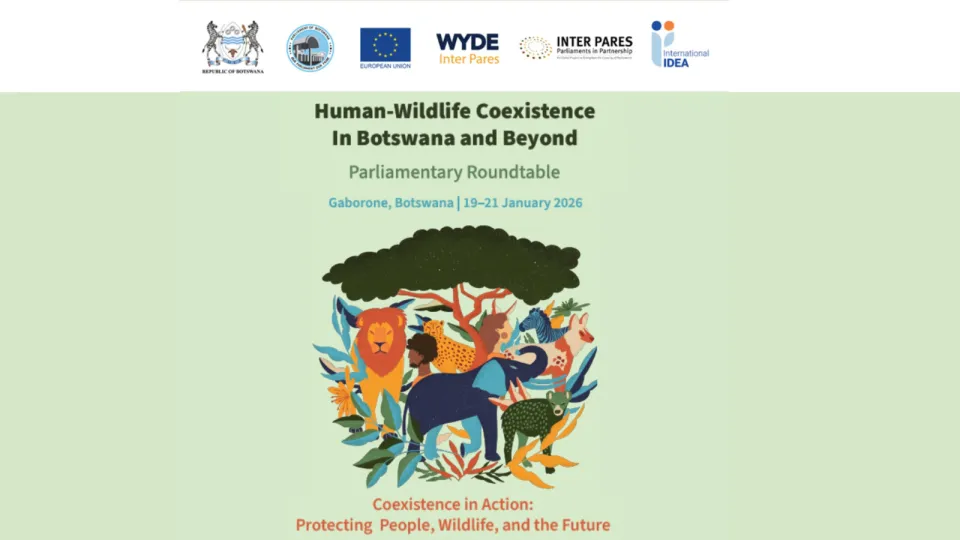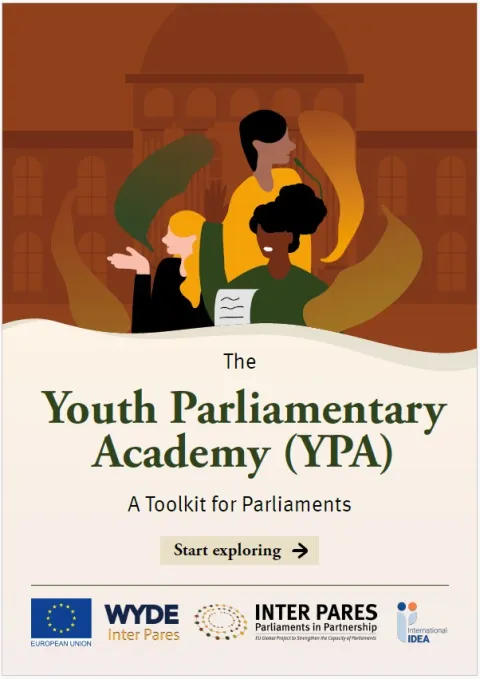Election Observation Missions (EOMs) have become an established part of the international electoral scene.
Search
Region
Country
Type
Climate change is the existential issue of our time. How will it affect how democracies function? Are democracies well placed to deal with the long term challenges presented by rising world temperatures? What will be the impact of climate change on regional security and conflict?
The Secretary-General of International IDEA, Dr Kevin Casas-Zamora, talks to Andrew Gilmour, Executive Director of the Berghof Foundation.
The 2021 International Women’s Day (IWD) commemoration is taking place in an unprecedented global context due to the impact of the Covid-19 pandemic, which has resulted in a “new normal” in relation to the various aspects of life, including changes in the strategies on political participation.
Parliaments play a crucial role in advancing gender equality, and women in parliaments are known to be the “main drivers of change in terms of gender equality in parliament” (IPU). Representation of social diversity, holding the executive to account, drafting relevant and adequate legislation, and drawing attention to specific issues, are all important functions that parliaments perform and are vital in achieving gender equality.
Collaborating for women’s empowerment and inclusion: Senior experts and actors of change put heads together in a cross-sectoral dialogue
#SheLeadsEU
La pandemia de COVID-19 ha impuesto una enorme presión sobre la democracia electoral en todo el mundo. Muchas elecciones han tenido que posponerse, mientras que otras se han realizado pero con adaptaciones.
Across the world, women face challenges to participate in politics, from confronting hate speech to internal party obstacles and lack of subsidized maternity leave. What are the best ways to increase women’s participation in elections and within party politics? What has been the influence of the #MeToo movement? Is it just about increasing the numbers of women in parliament?
La Junta de Asesores de IDEA Internacional tuvo su primera reunión del año el 22 de febrero de 2021 y dio la bienvenida a siete nuevos miembros de la Junta. Durante la reunión, la Sra. Njeri Kabeberi fue elegida como la nueva Presidenta de la Junta y la Sra. Laura Chinchilla como la Vicepresidenta para 2021.
In the lead up to International Women's Day 2021, we are reminded that political representation of women remains low in most countries. Women represent only about 25 per cent of all elected parliamentarians globally (IPU 2021). With the current pace, it is estimated to take another 47 years to reach gender parity in parliaments (International IDEA 2019). Political finance regulations play a major role in promoting women’s political participation and representation.
There is considerable variation in how citizens cast their ballot around the world during ‘normal times’. The traditional vision of an election is that citizens vote at polling stations using a paper ballot. However, modern technology has enabled voting at electronic kiosks and even remote internet voting. Elections have increasingly been made more convenient by allowing citizens to cast
The design of a ballot paper is important. The ballot conveys the voter’s intentions and political choices: a good design presents clear and understandable options to voters and reduces the chances of voter error. But beyond this utilitarian function, the ballot carries a powerful symbolic value of the compact between the citizen and the state, or, more simply put: ‘my vote matters’.
International IDEA’s Board of Advisers had its first meeting of the year on 22 February 2021, welcoming seven new Board members. During the meeting, Ms Njeri Kabeberi was elected as the new Chair of the Board and Ms Laura Chinchilla as the Vice Chair for 2021.
En el inicio de la pandemia, muchos países pospusieron las elecciones. Sin embargo, a partir de junio de 2020, hubo un cambio de tendencia y estas comenzaron a celebrarse nuevamente. Gracias al intercambio de información y la colaboración entre pares, las autoridades electorales adquirieron conocimientos sobre los riesgos y las medidas de prevención y de mitigación.
At the start of the pandemic, many countries postponed elections. From June 2020, the trend shifted to holding elections. Thanks to information sharing and peer-to-peer exchanges, election authorities gained an understanding of the risks and prevention/mitigation measures.
This GSoD In Focus aims at providing a brief overview of the state of democracy in Europe at the end of 2019, prior to the outbreak of the pandemic, and then assesses some of the preliminary impacts that the pandemic has had on democracy in the region in the last 10 months.
Key facts and findings include:
The COVID-19 pandemic has placed a profound strain on electoral democracy worldwide. Many elections have been postponed, while others have been held with adaptation.
This GSoD In Focus aims at providing a brief overview of the state of democracy in Africa and the Middle East at the end of 2019, prior to the outbreak of the pandemic, and then assesses some of the preliminary impacts that the pandemic has had on democracy in the region in the last 10 months.
Key facts and findings include:
Africa
ADDIS ABABA - The COVID-19 pandemic has regressed key aspects of democracy in Africa and the Middle East, including the disruption of electoral processes, restrictions on civil liberties like freedom of expression, and increasing persecution of opposition leaders and parties. The pandemic has hit the region at a time in which the significant advances of democracy in the last decades were coming to a halt.
The right to cast a vote in democratic elections stands at the core of people’s political rights. However, for citizens residing abroad the issue is less straightforward. Should people that have made a choice to live in another country still have voting rights in their country of origin? If so, should the state be responsible for facilitating their vote from abroad—or should citizens simply have the option of returning to exercise their right?
The peaceful transfer of power is the very essence of democracy. We strongly condemn the storming and violent occupation of Washington DC’s Capitol by protesters. This is an affront not just to one of the world’s oldest democracies, but to the global cause of democracy.


